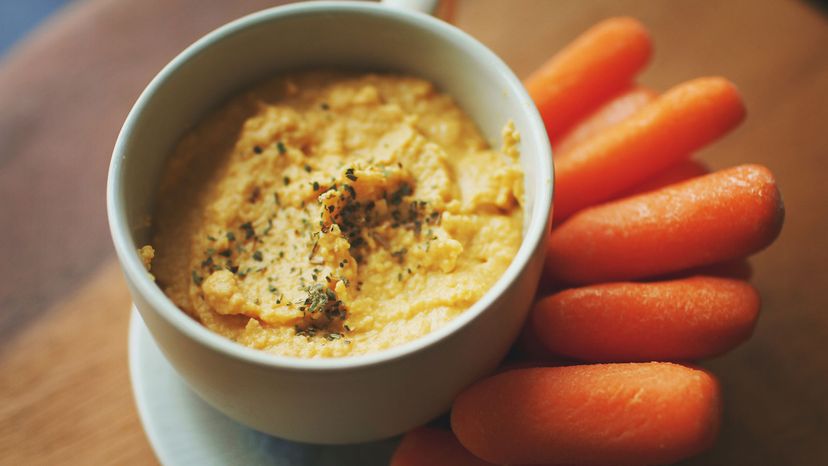
A decade or so ago, party dips were relegated to guacamole, salsa and the occasional queso. The surge in popularity of the heart-healthy Mediterranean diet, however, has seen a huge spike in the number of hummus enthusiasts, a fortunate event since the dip is both delicious and healthy, right? Well, it can be, if you do hummus correctly.
"Hummus is a great trifecta of macronutrients — combining a good source of protein, fiber and healthy fat," says Amnon Gilady, hummus expert and owner of Falafel King Foods in an email. "At the same time it's also a micronutrient dense dip providing good calcium and iron content, and packed with vitamin E and B and minerals like magnesium and potassium."
Advertisement
Hummus is also a dream for those with dietary restrictions, as it can easily be made to be soy-, nut-, dairy- and gluten-free. As with many otherwise healthy foods, nutritionists caution people to be mindful of what you eat it with (veggies rather than chips) and watch portion sizes because it is possible to have too much of a good thing.
